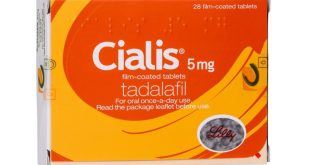Anxiety and substance abuse are two prevalent issues in today’s society, often occurring simultaneously and exacerbating each other’s effects. This complex relationship between anxiety disorders and substance abuse is known as a dual diagnosis. Understanding this intersection is crucial for effective treatment and recovery. In this article, we will delve into the intricacies of this dual diagnosis, exploring its causes, symptoms, effects, and treatment options.
Understanding Anxiety and Substance Abuse:
Anxiety disorders encompass a range of conditions characterized by excessive worry, fear, and apprehension. These disorders can manifest in various forms, such as generalized anxiety disorder (GAD), panic disorder, social anxiety disorder, and specific phobias. Individuals with anxiety disorders often experience persistent feelings of tension, nervousness, and unease, which can significantly impair their daily functioning and quality of life.
On the other hand, substance abuse involves the excessive use of drugs or alcohol despite negative consequences. Substance abuse can lead to addiction, a chronic disease characterized by compulsive drug-seeking behavior and drug use despite harmful consequences. Common substances of abuse include alcohol, tobacco, prescription medications, and illicit drugs like cocaine, heroin, and methamphetamine.
The Link Between Anxiety and Substance Abuse:
The relationship between anxiety and substance abuse is bidirectional, meaning that each condition can contribute to and exacerbate the other. Individuals with anxiety disorders may turn to substances as a way to self-medicate and alleviate their symptoms temporarily. For example, someone with social anxiety may use alcohol to numb their fears and feel more relaxed in social situations. Similarly, individuals with panic disorder may misuse benzodiazepines or other sedatives to manage their anxiety attacks.
Conversely, substance abuse can also trigger or worsen anxiety symptoms. Prolonged substance use can disrupt brain chemistry and increase feelings of anxiety and agitation. Moreover, the withdrawal symptoms associated with substance dependence can mimic or exacerbate anxiety symptoms, leading to a cycle of dependence and anxiety.
Common Risk Factors:
Several factors contribute to the development of both anxiety disorders and substance abuse, including genetic predisposition, environmental influences, and psychological factors. Traumatic experiences, chronic stress, and dysfunctional coping mechanisms can also increase the risk of developing both conditions.
Moreover, certain neurotransmitters, such as serotonin, dopamine, and gamma-aminobutyric acid (GABA), play a crucial role in regulating mood and anxiety. Dysregulation of these neurotransmitter systems can contribute to both anxiety disorders and substance abuse.
Effects of Dual Diagnosis:
The co-occurrence of anxiety and substance abuse can have profound effects on an individual’s physical health, mental well-being, and social functioning. Chronic substance abuse can exacerbate anxiety symptoms and increase the risk of developing other mental health disorders, such as depression and psychosis. Additionally, substance abuse can lead to various medical complications, including liver disease, cardiovascular problems, and respiratory disorders.
Furthermore, individuals with a dual diagnosis often face challenges in maintaining stable relationships, employment, and housing. The stigma surrounding mental illness and substance abuse can further isolate them from social support networks and hinder their access to treatment and recovery resources.
Understanding Anxiety Disorders
Anxiety is a natural human response to stress, characterized by feelings of worry, nervousness, or fear. However, when these feelings become overwhelming and persistent, they may develop into an anxiety disorder. Anxiety disorders are among the most common mental health conditions, affecting millions of people worldwide. There are several types of anxiety disorders, including:
- Generalized Anxiety Disorder (GAD): Characterized by chronic, excessive worry about various aspects of life.
- Panic Disorder: Marked by recurrent, unexpected panic attacks and the fear of future attacks.
- Social Anxiety Disorder: Involves intense fear and avoidance of social situations due to fear of being judged or embarrassed.
- Specific Phobias: Excessive fear of specific objects or situations, such as heights, spiders, or flying.
These disorders can significantly impair daily functioning, leading individuals to seek relief through various means, including substance use.
Substance Abuse and Its Impact
Substance abuse involves the harmful or hazardous use of psychoactive substances, including alcohol and illicit drugs. Substance use disorder (SUD) is a medical condition characterized by an inability to stop or control substance use despite adverse consequences. Substances commonly abused include alcohol, marijuana, opioids, stimulants, and sedatives.
Substance abuse can have devastating effects on an individual’s physical health, mental well-being, relationships, and overall quality of life. Chronic substance abuse often leads to tolerance, dependence, and addiction, making it increasingly difficult for individuals to function without the substance.
The Connection Between Anxiety and Substance Abuse
The relationship between anxiety and substance abuse is bidirectional and complex. Anxiety can lead to substance abuse, and substance abuse can exacerbate anxiety symptoms. Understanding this interplay is crucial for effective treatment and management of dual diagnosis.
Self-Medication Hypothesis
One common explanation for the co-occurrence of anxiety and substance abuse is the self-medication hypothesis. This theory suggests that individuals with anxiety disorders may turn to substances as a way to alleviate their symptoms. For example, someone with social anxiety might use alcohol to feel more comfortable in social settings. Similarly, an individual with panic disorder might use benzodiazepines to manage their panic attacks.
While substances may provide temporary relief, they often worsen anxiety symptoms over time. The cyclical nature of using substances to cope with anxiety, followed by increased anxiety due to substance use, can create a vicious cycle that is difficult to break.
Neurobiological Factors
Neurobiological factors also play a significant role in the relationship between anxiety and substance abuse. Both conditions involve alterations in brain chemistry and functioning. For instance, neurotransmitters like dopamine and serotonin are implicated in both anxiety disorders and substance use disorders.
Substance abuse can disrupt the brain’s reward system, leading to changes in mood and behavior that exacerbate anxiety symptoms. Conversely, chronic anxiety can alter brain chemistry in ways that make individuals more susceptible to substance dependence. These neurobiological changes underline the importance of addressing both conditions simultaneously in treatment.
Genetic and Environmental Influences
Genetic predisposition and environmental factors can also contribute to the dual diagnosis of anxiety and substance abuse. Family history of mental health disorders or substance abuse increases the likelihood of developing these conditions. Additionally, early life stressors, trauma, and adverse childhood experiences can significantly impact an individual’s vulnerability to both anxiety and substance use disorders.
Environmental factors, such as peer pressure, socioeconomic status, and exposure to substances, also play a role. For instance, individuals in high-stress environments may turn to substances as a coping mechanism, further entangling anxiety and substance abuse.
Treatment Approaches:
Effective treatment for dual diagnosis involves addressing both the underlying anxiety disorder and substance abuse problem simultaneously. Integrated treatment programs, which combine psychotherapy, medication management, and behavioral interventions, have been shown to be most effective in managing dual diagnosis.
Cognitive-behavioral therapy (CBT) is one of the most widely used therapeutic approaches for dual diagnosis. CBT helps individuals identify and challenge negative thought patterns and maladaptive behaviors associated with both anxiety and substance abuse. Additionally, medication, such as antidepressants or anti-anxiety medications, may be prescribed to alleviate anxiety symptoms and reduce cravings for substances.
In addition to clinical interventions, holistic approaches, such as mindfulness-based practices, exercise, and nutrition therapy, can complement traditional treatment modalities and promote overall well-being and recovery.
Conclusion:
In conclusion, the co-occurrence of anxiety disorders and substance abuse presents a significant challenge for individuals struggling with these conditions. Understanding the complex interplay between anxiety and substance abuse is essential for developing effective treatment strategies and promoting long-term recovery. By addressing both the underlying mental health issues and substance abuse problem concurrently, individuals with a dual diagnosis can achieve better outcomes and improve their quality of life. With proper support, resources, and treatment, recovery from dual diagnosis is possible, offering hope for a brighter and healthier future.







